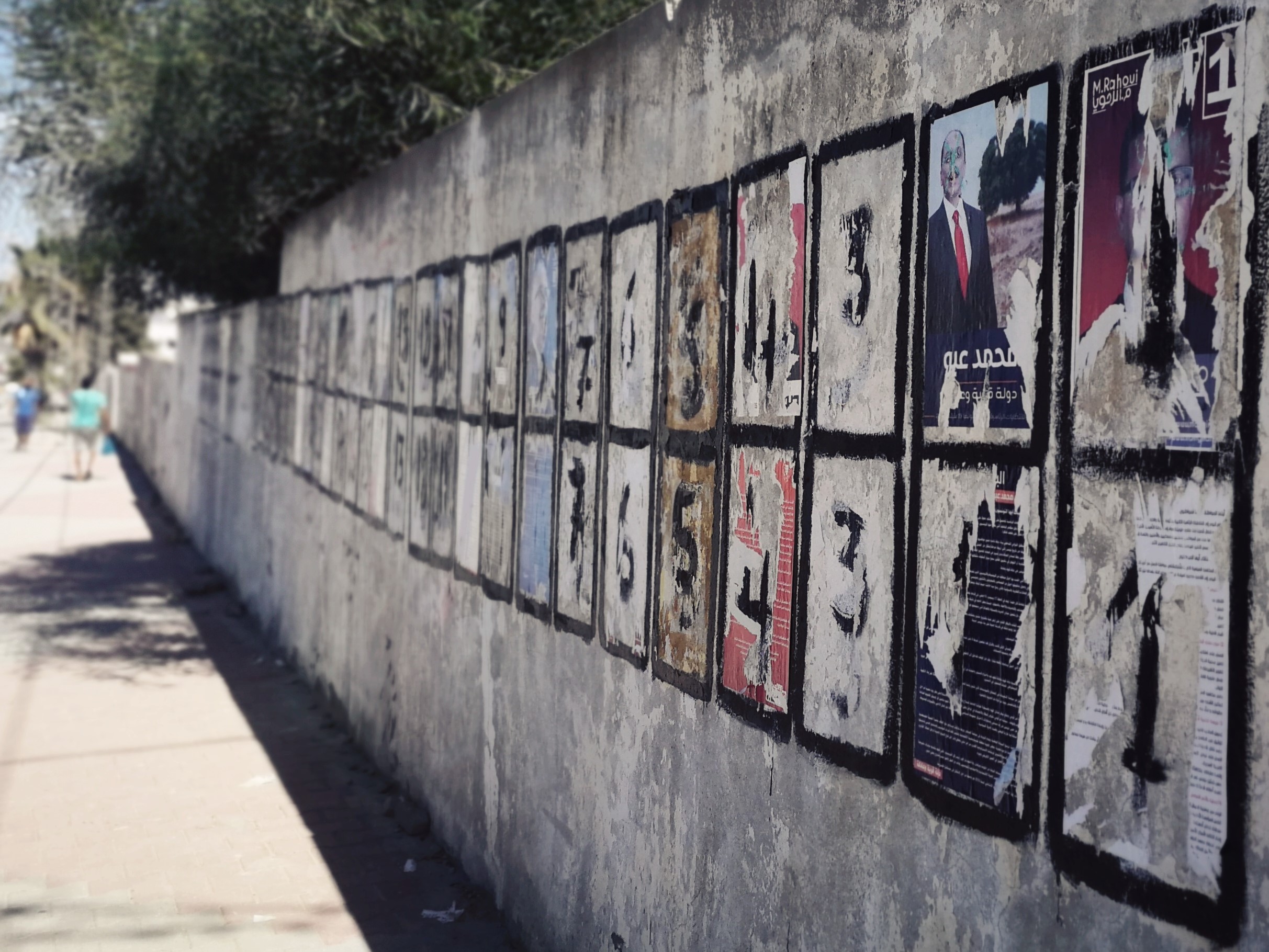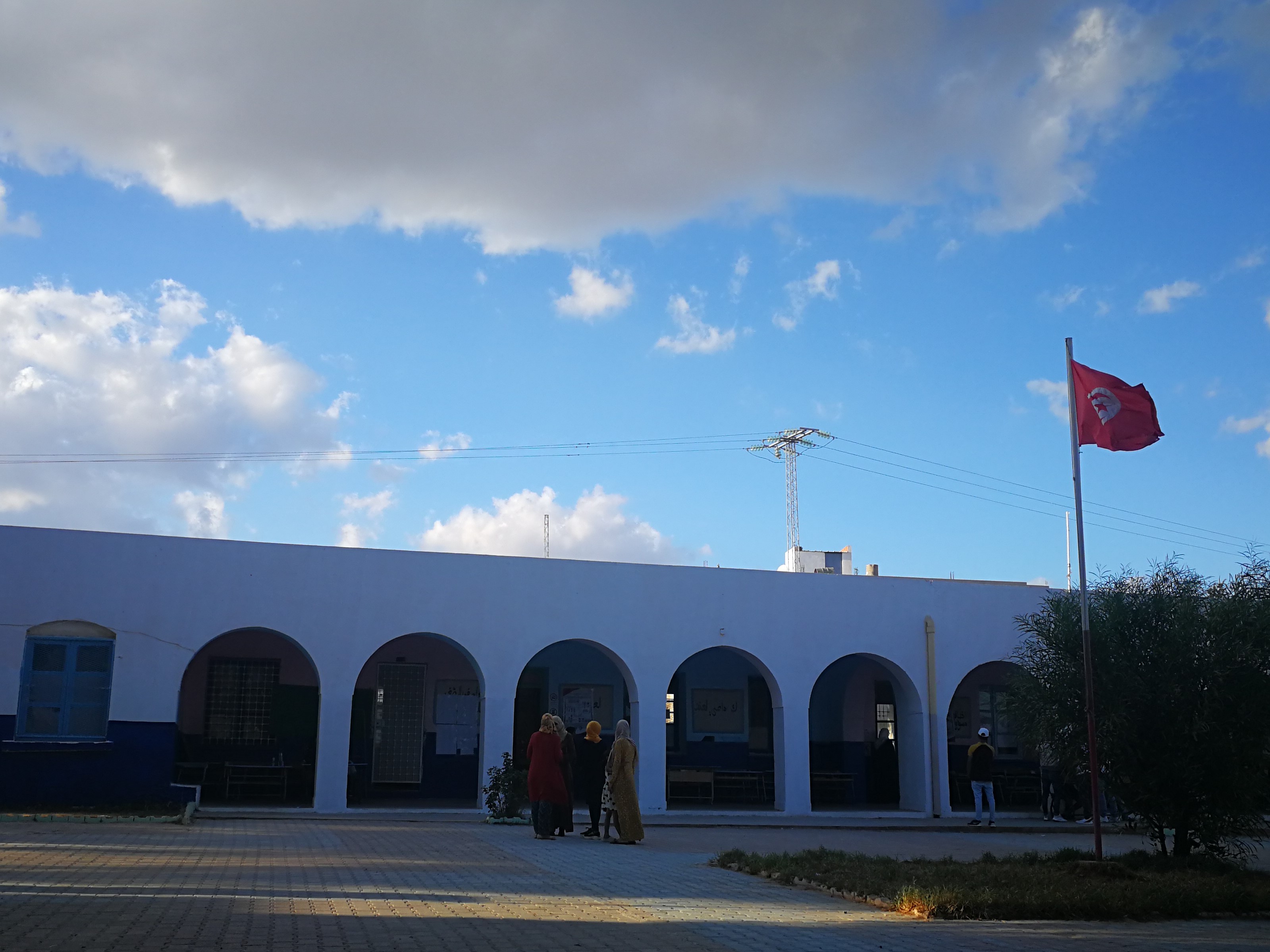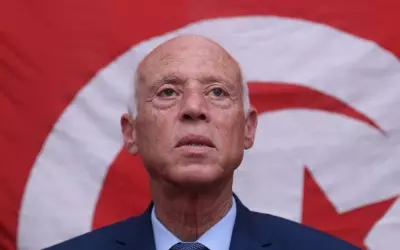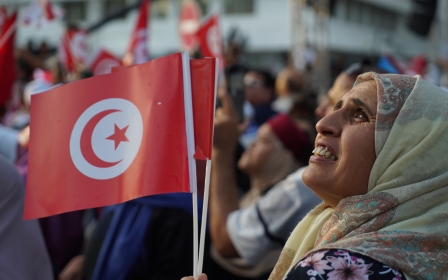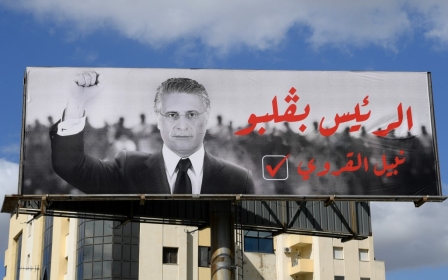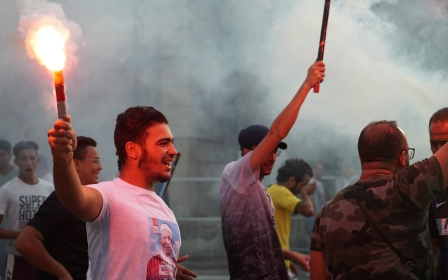Tunisia's democracy: A source of inspiration for the Arab world
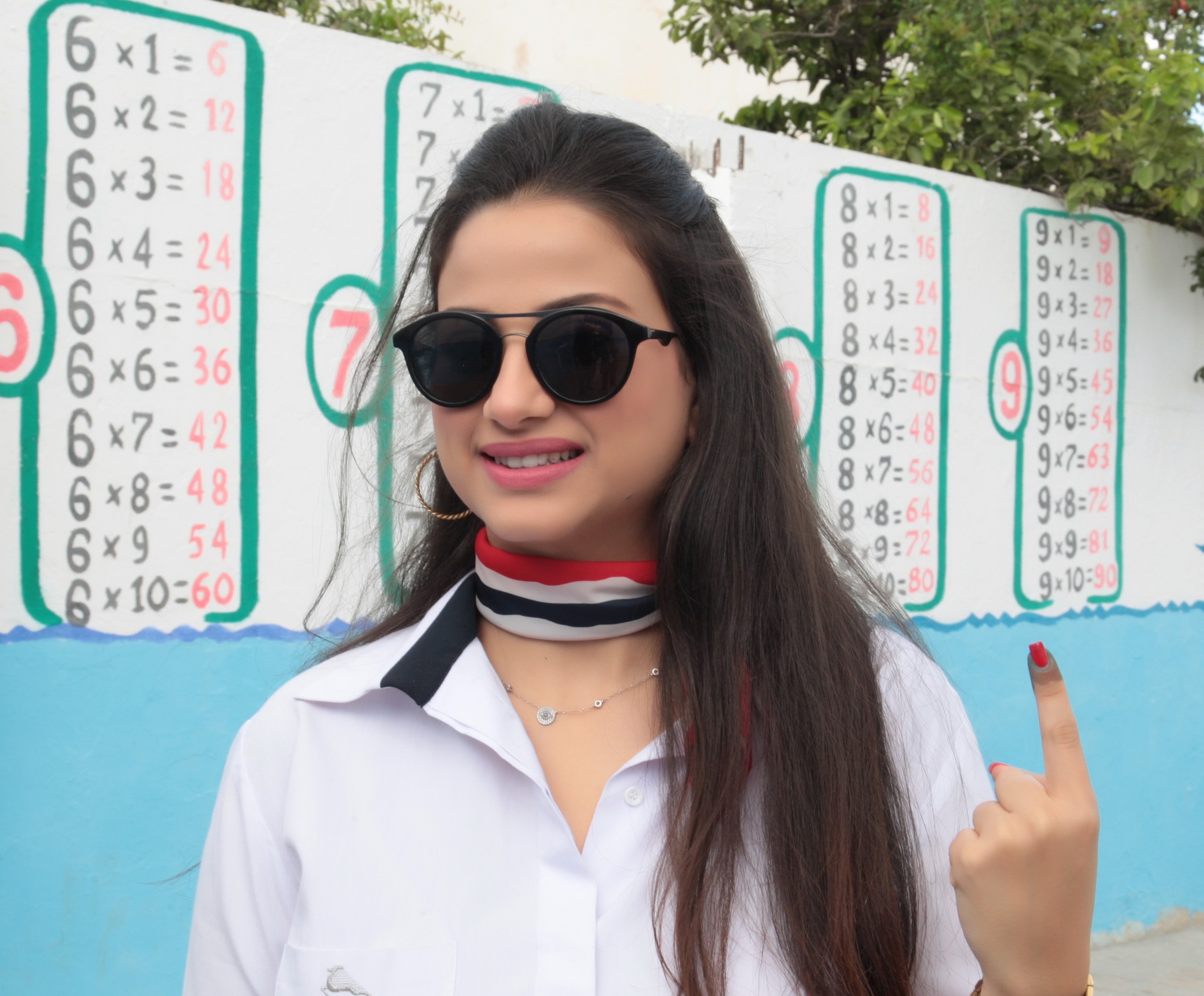
Between two rounds of the presidential election, seven million Tunisians were called on 6 October to choose the 217 representatives of their parliament. This is the second parliamentary election since the 2014 adoption of Tunisia's constitution.
I had the chance to be an international electoral observer with the International Republican Institute (IRI) and the National Democratic Institute (NDI) in a joint international Election Observation Mission.
Supporting democracy
I was deployed in the town of Zaghouan, the capital of Zaghouan Governorate. The participation rate in the parliamentary elections was lower than that of the presidential elections that approached 50 percent.
Estimated at around 41.3 percent on the national level, it reached 41 percent in Zaghouan.
New MEE newsletter: Jerusalem Dispatch
Sign up to get the latest insights and analysis on Israel-Palestine, alongside Turkey Unpacked and other MEE newsletters
Only eight years since the revolution, the acculturation to democracy in the small north African country is a reality
Observers explain that given the importance of the political issues, this rate remains modest. While it is true that Tunisians are deeply disappointed by the socioeconomic outcomes that the transition has brought, it is also true that their support to democracy is unhindered.
Only eight years since the revolution, the acculturation to democracy in the small north African country is a reality. Tunisians have adjusted, adopted and acquired democratic values, and voting in transparency is becoming a habit. Despite the low turnout in these legislative elections, Tunisians have shown their commitment to democratic practices and processes.
Citizens were highly engaged, as shown by all of the candidate list agents, domestic observers, and media representatives that I met during election day. According to the Independent High Authority for Elections (ISIE), it accredited approximately 700 international observers, 17,000 domestic ones, and 95,000 candidate list agents throughout the country.
Inside Zaghouan
While I have observed some minor isolated irregularities, I was impressed by the respect, knowledge, and professionalism of the staff. In Zaghouan, elections were particularly well-administered and took place in a calm and orderly environment and were in line with the existing regulations.
Located on the ridge of the Dorsal Mountains in the North of Tunisia, at approximately 60Km south of the capital, Zaghouan has a population of 281,450 inhabitants. While the governorate is among the least populated of Tunisia, it is also the most educated with a rate of school enrollment that reached 95 percent in 2017.
Due to this relatively better economic situation, the governorate experienced less unrest and fewer protests than other governorates in Tunisia
The region has a large agricultural area of some 282 thousand hectares. Hence, the local economy is based on agriculture that absorbs some 13 percent of the labour force.
The poverty rate in the Zaghouan governorate approaches a regional average of 20 percent, with remarkable disparities between different sub-regional groups such as Saouef, and En Nadhour. In these localities, the poverty rate reached 26 percent and 29 percent respectively against 13 percent and 18 percent in Zaghouan and Ez Zriba.
According to the National Institute of Statistics, the unemployment rate decreased substantially in the region, going from 20 percent in 2004 to 9 percent in 2018. This is mainly due to the development of an industrial zone that until November 2017, sheltered some 288 companies.
Due to this relatively better economic situation, the governorate experienced less unrest and fewer protests than other governorates in Tunisia. While in 2017 Zaghouan residents joined the protests in solidarity with Kamour protestants – who occupied an oil and gas facility in southern Tunisia to complain about the marginalisation of their region and the lack of development projects – they did not join national protests in 2016 or 2018 that were about the health and education sectors.
According to interviews conducted on the pre-election day with ISIE local authorities, there were 137 polling centres and 257 polling stations for a total of 118,219 voters. For five seats in parliament, there was a total of 53 lists with 27 independent against 21 of the party lists.
No list has managed to reach the electoral quota, which is around 9,800 votes. The five seats were therefore distributed to the list that obtained the highest score. Rached Ghannouchi's moderate Islamist party Ennahda arrived first with 6,304 votes; followed by M. Karoui’s Qalb Tounes (Heart of Tunisia) with 4,873 votes; the secularist Nidaa Tounes followed with 2,272 votes; the Free Destourian Party (PDL) with 2,012 votes; and finally the independent list "Al Khir" [The Good] with 1,788 votes.
No violations
During the pre-election day, the global environment in Zaghouan was calm, except for some campaigning with posters of legislative candidates still on some of the walls in the vicinity of polling centres. This is not allowed by ISIE as it prescribes a period of silence of 24 hours; otherwise, no violation was observed.
Polling centres received all of the sensitive materials and were guarded by military personnel who slept in the centres to protect the material. The keys were with the president of each polling centre.
I noticed that a majority of polling officials were women in comparison to the voters who were a majority of men
During election day, I reached the first polling centre at 7:15am and I observed the opening that started exactly at 8:00am. I spent 30 to 45 minutes in every polling station, and I observed nine polling stations that were spread between Zaghouan town, Hammam Ez Zriba, Ez Zriba village, and Jbel El Wast.
All of the polling centres we visited were secured by the army or police who were stationed outside as required by law. The environment was quiet and one could feel that polling officials were very focused.
Their level of procedural knowledge and professionalism was high. Everything was very well organised: the ID and name of the voter were systematically checked on the register that he or she would sign, the ballot was stamped in front of the voter on its four corners, and the left-hand index was inked.
Phones were not allowed in the stations and officials enforced the law. The transparency of the process was ensured throughout the day in all of the polling stations I visited.
In each station, there were three polling officials, one president, and two aids. Throughout the day, I noticed that a majority of polling officials were women in comparison to the voters who were a majority of men. Accredited citizens and local and international observers were present, and several times I was warmly welcomed because I was the “Algerian sister.”
All material (voter registries; ballots; ballot boxes; cardboard voting screens; stamp; ink and minutes) was cautiously displayed. There was no critical violation observed except for some minor issues that I noticed throughout the day, such as the absence of voter lists in front of each polling station and the inaccessibility of people with disabilities or those with mobility problems.
Democratic values
Some confusion was noticeable among the elderly or people unfamiliar with what to do, while some women insisted on having their spouses accompany them. Polling officials explained the rules and voters abided by them; even very young children were not allowed to enter with their parents.
They would stay with the polling station official who would indulge in their demands to have their fingers inked. Practices such as group voting or proxy voting (voting on behalf of someone else) are today inconceivable.
As explained by a 48-year-old Tunisian woman, an employee of the Ministry of Finance: “Today, things are different in Tunisia. Let me tell you a story. I got married in 1995, and I came from Tunis to Zaghouan. All those years, I never changed my residency. Until 2009, my mother used to call me at each election to say that she voted on my behalf with my ID. Can you imagine? Today, these kinds of practices are unimaginable. Rules are respected, and Tunisians learned.”
Only eight years after the uprising, Tunisians have shown that they learned, reproduced, and know democratic values. They are actively working to enhance the quality of their electoral process and citizen’s confidence in the polls.
Their model should be a source of inspiration for many countries in the region and especially for neighbouring North African countries.
This article includes the author’s personal experience and analysis and does not necessarily reflect the views of the International Election Observation Mission.
The views expressed in this article belong to the author and do not necessarily reflect the editorial policy of Middle East Eye.
Middle East Eye delivers independent and unrivalled coverage and analysis of the Middle East, North Africa and beyond. To learn more about republishing this content and the associated fees, please fill out this form. More about MEE can be found here.



